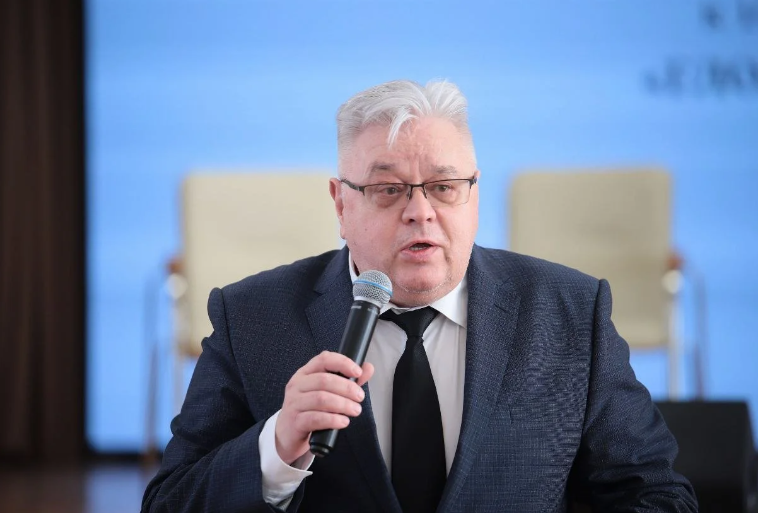Russian academic denounces propaganda myths
Historian Valery Garbuzov, director of the Russian Institute for US and Canadian Studies, was fired for publishing an article in which he defined Putin's geopolitical program as "fragile, uncertain and eclectic", the result of a "post-imperial syndrome " which fuels the "bubble of illusions". He was attacked by the Russian media who called for "at least his expulsion".
Moscow (AsiaNews) - A high-profile figure has distinguished himself in recent days in an attempt to denounce the falsehoods of state ideology, creating a certain uproar in the world of Russian information.
Valery Garbuzov, director of the Russian Institute for Studies on the USA and Canada (an institution of the Academy of Sciences that already existed in Soviet times), was fired for having published an article on Russian propaganda myths regarding Western countries, and he managed to publish a sequel to this first piece even after the defenestration.
The Institute's collective took sides in defense of the now ex-director, and both of his texts were published on the Nezavisimaja Gazeta website, and although they were soon deleted, many had time to download them.
The 33-year-old director of the strategic analysis center of the Academy of Sciences, Sergei Kislitsyn, a Kremlin loyalist, was appointed in Garbuzov's place. The article for which the director was eliminated is called "On the lost illusions of a disappearing era", which lists the ideological stereotypes starting from those of Soviet heritage, the contrast between "world communism" and "the 'American imperialism'. Russia is described as a former empire suffering from the syndrome of suddenly lost greatness.
According to Garbuzov “what we see expressed very clearly today in this post-imperial syndrome is its tragic logic, rather than a historical anomaly… The peculiarity is that it did not manifest itself immediately after the collapse of the USSR in 1991, but only in followed, with the coming of Putin to power”.
The disease ignored and underestimated over time has exploded into extremely threatening dimensions for the safety of the entire world. Russia's geopolitical program is "fragile, uncertain and eclectic", it is only a "collage of statements between Eurasianism, the Russian world, on the basis of an aggressive anti-Americanism and the opposition to the unipolar world".
Rather confused are the conceptions of the "sovereign democracy" of the "deep people", seasoned by nostalgia for phantom traditional values and a questionable interpretation of the Orthodox faith.
The historian observes that Russia has now failed in its plan to become the "autonomous locomotive of the anti-Western movement", trying to constitute a credible alternative to the two "informal", but real, "empires" of the United States and China.
Its mythology only increases the bubble of illusions, in the overflowing patriotic rhetoric of an imaginary superpower, and in the intention to "preserve power eternally at any cost" that characterizes the current regime, with all the oligarchic elite that supports it , concludes Garbuzov.
The text provoked angry reactions from all the propagandists of the Russian media, starting from the television host Vladimir Solov'ev, who demands the verification of all the financing of the USA-Canada Institute and urges the rapid intervention of the police against the ex-director, "at least his expulsion, that he continue to work on contract in one of the American universities". The second part of Garbuzov's reflections was released under the title "A Sudden Storm in Nothingness", in which he responds to his accusers in a "popular and popular" way.
He reiterates the thesis that "myths are created at different times and are differently instilled in the social consciousness of the masses, to allow temporary consolidation around the existing power to achieve certain goals". This explains the ever-present spread of anti-Western sentiments in Russian society, but this does not prevent historical processes from reaching their inevitable conclusions.
“No one can freely asphalt the culture and lifestyle of the West, nor will it be possible to erase Russian culture from Western space, at least in its most significant segments,” believes the scholar. Therefore "sooner or later relations between Russia, the USA and other Western countries will develop again", not following revolutions or coups d'état, but due to the collapse of all false myths.
25/01/2024 09:52
06/08/2021 09:55







.png)












